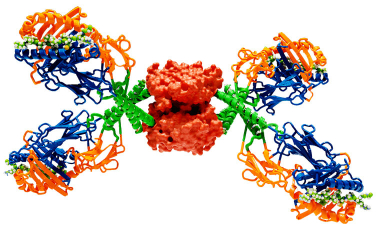Epitope modification represents one important means through which the deletion of self-reactive T cells can be circumvented. Such modifications alter the primary sequence of self-peptides. This phenomenon serves to increase antigenic diversity and generates a special class of antigens that falls within ‘blind spots’ of central tolerance.
More specifically post-translational modifications (PTMs) have the potential to increase the affinity of HLA/peptide interactions or HLA/peptide-TCR interactions depending on the positioning of the affected residue in relation to other HLA-anchoring residues along the peptide sequence. In particular, two modifications (citrullination and deamidation) have emerged that appear to have particular relevance in the etiology of autoimmunity.
Our objective is to investigate the recognition of PTM epitopes as an important example of how the activation of self-reactive T cells contributes to the progression of autoimmune disease in humans. We seek to quantitate and phenotypically characterize T cells that recognize these disease relevant epitopes as a means of studying the natural history end etiology of autoimmune diseases.



